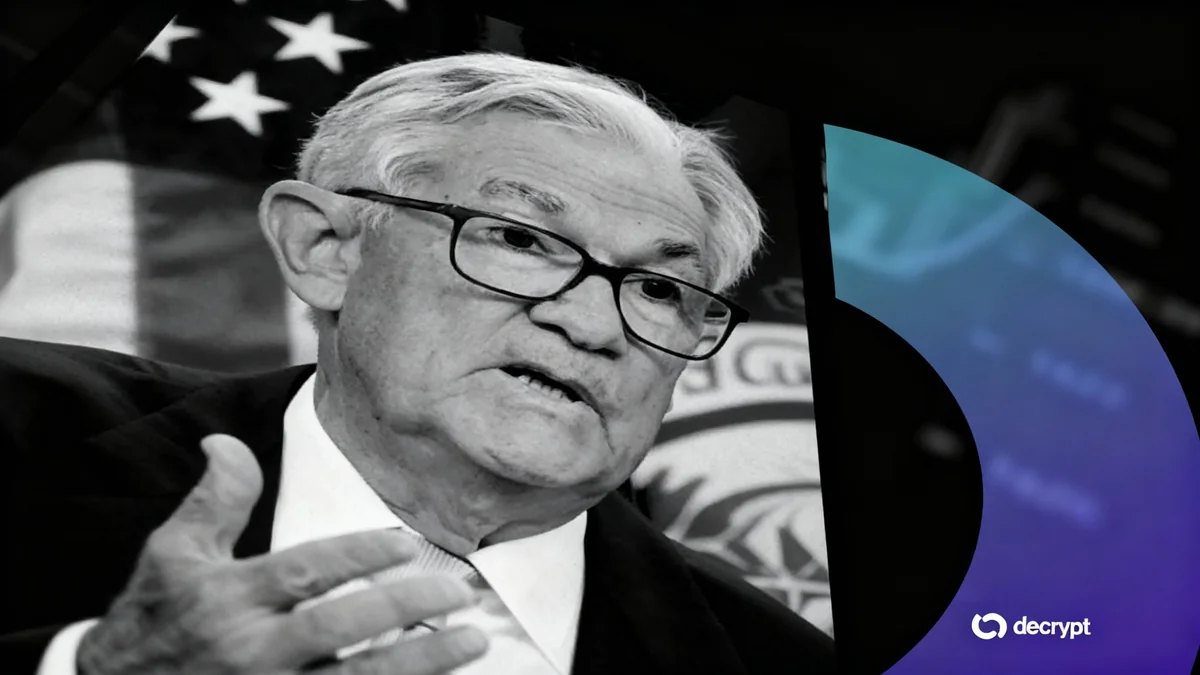BlackRock, the world's largest asset manager, has taken the first step toward launching a new Bitcoin exchange-traded fund (ETF) designed to generate regular income for investors. The firm registered a trust in Delaware on Thursday for a proposed "Bitcoin Premium Income ETF," signaling a strategic expansion beyond its highly successful spot Bitcoin fund, IBIT.
This new product aims to provide investors with a steady stream of income by using a covered call options strategy on Bitcoin futures. This approach differs significantly from its existing IBIT fund, which directly tracks the price of Bitcoin.
Key Takeaways
- BlackRock has registered a Delaware trust for a new Bitcoin Premium Income ETF.
- The proposed fund will use a covered call strategy on Bitcoin futures to generate income.
- This product is designed as a complement to the existing spot Bitcoin ETF, IBIT, which has over $60 billion in inflows.
- The new fund addresses the long-standing issue of Bitcoin's lack of native yield, potentially attracting more traditional investors.
BlackRock Signals Next Phase in Crypto Strategy
BlackRock's recent move to register a statutory trust in Delaware is a standard preliminary step for asset managers planning to introduce new investment products. While not an official application to the Securities and Exchange Commission (SEC), this registration is a clear indicator of the company's intent to file for a Bitcoin Premium Income ETF.
The filing precedes the more formal S-1 or 19b-4 submissions required by the SEC to begin the official approval process. This development comes as regulatory bodies show increasing openness to a wider variety of cryptocurrency-based investment vehicles, following the landmark approval of spot Bitcoin ETFs earlier in 2024.
The proposed fund represents a strategic diversification of BlackRock's digital asset offerings. It targets a different investor profile than those drawn to its spot Bitcoin ETF, which is designed for direct price exposure.
Understanding the Income Generation Model
The core of the proposed ETF is its income-generation strategy, which uses what is known as a "covered call." This financial technique involves holding an asset (in this case, via Bitcoin futures) and selling call options on that same asset.
A call option gives the buyer the right, but not the obligation, to purchase an asset at a predetermined price within a specific timeframe. For selling this option, the fund collects an upfront payment, or "premium." These collected premiums are then intended to be distributed to the ETF's shareholders as regular income.
What is a Covered Call Strategy?
In simple terms, a covered call strategy involves a trade-off. Investors who use this strategy agree to sell their asset if it reaches a certain higher price. In exchange for capping their potential upside gains, they receive immediate and consistent income from the option premium. It is often favored by investors seeking cash flow over maximum capital appreciation.
This approach effectively transforms a non-yielding asset like Bitcoin into an income-producing one. However, it means investors in this fund would likely not capture the full extent of a major Bitcoin price rally, as their potential gains are capped.
According to ETF analyst Eric Balchunas, this new product is a logical "sequel to the $87B IBIT." He noted that the covered call approach would effectively provide investors with a form of Bitcoin yield through the collection of options premiums.
Building on the Unprecedented Success of IBIT
BlackRock's decision to launch a new Bitcoin product is backed by the phenomenal success of its iShares Bitcoin Trust (IBIT). Since its launch in January 2024, IBIT has become one of the most successful ETF launches in history.
Since its inception, IBIT has attracted over $60.7 billion in inflows, making it the dominant fund in the spot Bitcoin ETF market. Its closest competitor, Fidelity’s FBTC, has seen approximately $12.3 billion in inflows over the same period.
The massive demand for IBIT has demonstrated strong institutional and retail investor appetite for regulated Bitcoin investment products. The proposed income ETF aims to capture a different segment of the market—those who are interested in digital assets but prioritize steady returns and are more risk-averse.
This new fund could solve a historical challenge for traditional finance institutions regarding Bitcoin: its lack of a native yield. Unlike stocks that may pay dividends or bonds that pay interest, Bitcoin itself does not generate cash flow. BlackRock's income ETF provides a structured way to create that cash flow.
The Broader Market for Crypto ETFs
While the market for spot Bitcoin ETFs has become highly competitive, the space for yield-generating Bitcoin products in the U.S. is still relatively undeveloped. BlackRock's entry could significantly legitimize and expand the options available for investors seeking income from their digital asset allocations.
Analysts suggest that BlackRock may continue to focus its efforts primarily on products related to Bitcoin and Ethereum, the two largest cryptocurrencies. This focused strategy could leave the market for ETFs based on other cryptocurrencies, often called altcoins, more open for other asset managers.
Firms like VanEck and ARK Invest have already filed for spot Ethereum ETFs, and the industry is watching for potential approvals for funds based on other tokens such as Solana (SOL), XRP, Litecoin (LTC), and Dogecoin (DOGE). Balchunas noted that BlackRock's focus on the two main assets leaves the altcoin ETF market "much more wide open" for its competitors.





